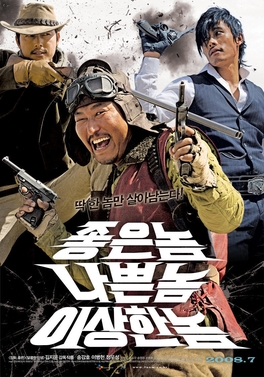
The snack stand outside school.

The secretaries. Sweet ladies but they speak almost no English.


Getting ready. That's Mina, my partner teacher, next to me.


Lunch time!
Suicide is painless.











Kim was born into a farming family in South Jeolla province in Korea's southwest when the country was still under Japanese colonial rule.
He started a business after the end of Japanese occupation and it survived the 1950-53 war on the Korean peninsula.
But as South Korea's government veered toward authoritarianism, he chose to go into politics and quickly marked himself as a dissident.
After three losing bids, he was elected to the National Assembly in 1961. Days later, Maj. Gen. Park Chung-hee staged a military coup and dissolved parliament.
Kim ran for the presidency a decade later, nearly defeating Park, who altered the constitution to guarantee his rule in the future.
Just weeks after the election, Kim was in a traffic accident he believed was an attempt on his life. For the rest of his days, he walked with a limp and often leaned on a cane.
In 1973, South Korean agents broke into his Tokyo hotel room and dragged him to a ship where he claimed they planned to dump him at sea. The would-be assassins aborted the plan following intervention by U.S. officials, who sent an American military helicopter flying low over the ship.
...
Upon his return to Seoul in 1973, Kim was put under house arrest and then imprisoned. His release came only after Park's assassination by his spy chief in late 1979.
Kim was pardoned a few months later. But the drama did not end there.
Weeks after Park's death, military leader Chun Doo-hwan seized power. Five months later, tens of thousands in the southern city of Gwangju — one of Kim's political strongholds — took to the streets to protest the junta.
Troops suppressed the uprising, killing some 200 people by official accounts. Accusing Kim of fomenting the uprising, a military tribunal sentenced him to death. Washington again intervened, and the sentence was commuted to life and then reduced to 20 years.
Kim refused to consider it a setback.
The sentence was later suspended and he left for the U.S., where he lived until 1985. He was 72 when he was elected president.
Expressing his trademark forgiveness and lack of vengeance, Kim immediately sought a pardon for Chun Doo-hwan, the military general who ordered Kim's death in 1979 and was sentenced for mutiny and treason.
Chun was among well-wishers who went to Kim's hospital room in recent days.
But the defining moment of the Kim presidency was his historic meeting with Kim Jong Il in 2000.
That summit — the first between the two Koreas — eased decades of tensions and ushered in an era of unprecedented reconciliation.
Families divided for decades held tearful reunions, and South Koreans began touring North Korea's famed scenic spots. Kim won the Nobel Peace Prize that year.
"In my life, I've lived with the conviction that justice wins," he said in accepting the honor. "Justice may fail in one's lifetime, but it will eventually win in the course of history."











Vincent: ...[D]o you consider a dog to be a filthy animal?
Jules: I wouldn't go so far as to call a dog filthy but they're definitely dirty. But, a dog's got personality. Personality goes a long way.
Vincent: Ah, so by that rationale, if a pig had a better personality, he would cease to be a filthy animal. Is that true?
Jules: Well we'd have to be talkin' about one charming motherfuckin' pig. I mean he'd have to be ten times more charmin' than that Arnold on Green Acres, you know what I'm sayin'?
—Pulp Fiction
Over the past few years, a number of psychologists have begun to look more closely at the role [unconscious associations] play in our beliefs and behavior, and much of their work has focused on a very fascinating tool called the Implicit Association Test (IAT). The IAT was devised by Anthony G. Greenwald, Mahzarin Banaji, and Brian Nosek, and it is based on a seemingly obvious—but nonetheless quite profound—observation. We make connections much more quickly between pairs of ideas that are already related in our minds than we do between pairs of ideas that are unfamiliar to us. What does that mean? Let me give you an example...*
When pyschologists administer the IAT...most of the time they do it on a computer. The words are flashed on the screen one at a time, and if a given word belongs to the left-hand column, you hit the letter e, and if the word belongs in the right-hand column, you hit the letter i. The advantage of doing the IAT on a computer is that the responses are measurable down to the milisecond, and those measurements are used in assigning the test taker's score...
One of the reasons that the IAT has become so popular in recent years as a research tool is that the effects it is measuring are not subtle...the IAt is the kind of tool that hits you over the head with its conclusions. "When there's a strong prior association, people answer in four hundred and six hundred milliseconds," says Greenwald. "When there isn't, they might take two hundred to three hundred milliseconds onger than that—which in the realm of these kinds of effects is huge. One of my cognitive psychologist colleagues described this as an effect you can measure with a sundial."
...It turns out that more than 80 percent of all those those who have ever taken the test end up having pro-white associations, meaning that it takes them measurably longer to complete answers when they are required to put good words into the "Black" category than when they are required to bad things with black people...